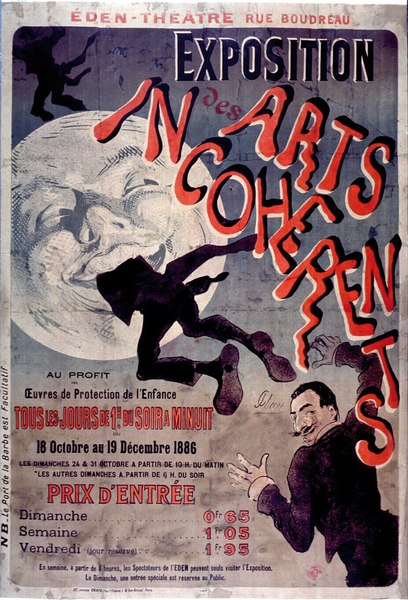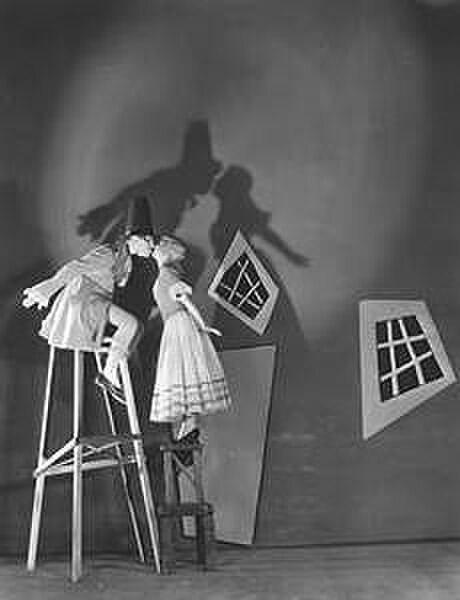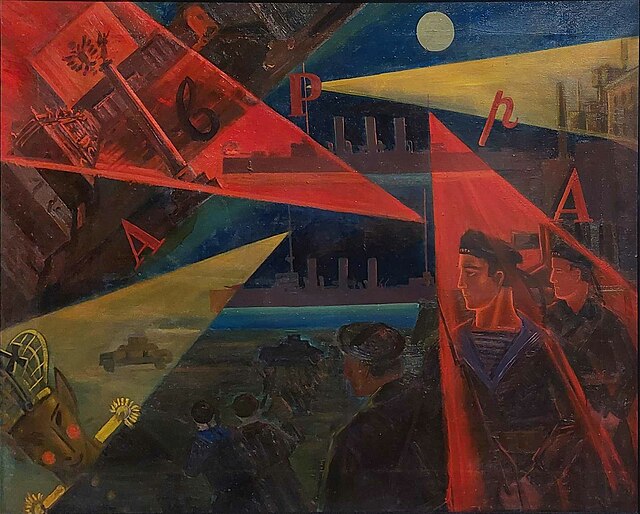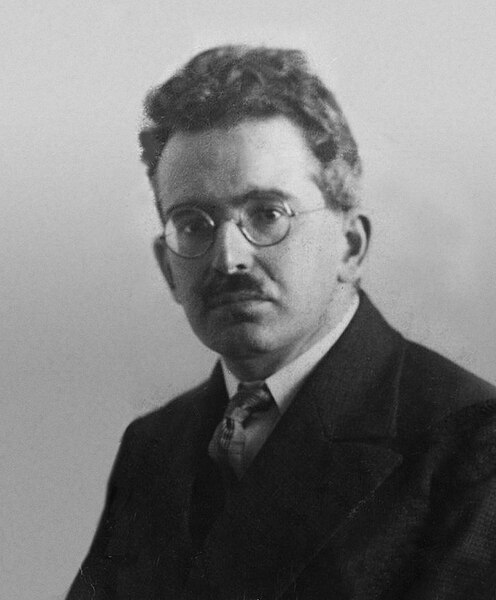The Incoherents was a short-lived French art movement founded by Parisian writer and publisher Jules Lévy (1857–1935) in 1882, which in its satirical irreverence, anticipated many of the art techniques and attitudes later associated with the avant-garde and anti-art movements such as Dada.
The Mona Lisa Smoking a Pipe by Sapeck, in Le Rire, 1887.
1899
1886
In the arts and in literature, the term avant-garde identifies an experimental genre, or work of art, and the artist who created it; which usually is aesthetically innovative, whilst initially being ideologically unacceptable to the artistic establishment of the time. The military metaphor of an advance guard identifies the artists and writers whose innovations in style, form, and subject-matter challenge the artistic and aesthetic validity of the established forms of art and the literary traditions of their time; thus, the artists who created the anti-novel and Surrealism were ahead of their times.
Avant-garde cinema: The Love of Zero (1928), a short film directed by the artist Robert Florey.
Political revolution has influenced both the topic and form in The Overthrow of the Autocracy, a Soviet avant-garde painting.
The cultural provocation of avant-garde art: Fountain (1917) by Marcel Duchamp. (Alfred Stieglitz)
In "The Work of Art in the Age of Mechanical Reproduction" (1935), Walter Benjamin addresses the artistic and cultural, social, economic, and political functions of art in a capitalist society.







